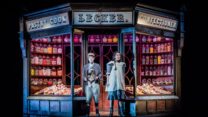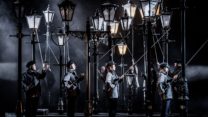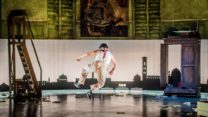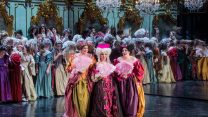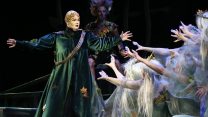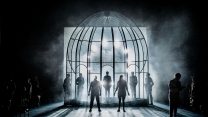New to Opera?
If you’re new to opera, and not sure if it’s for you or where to start, here’s our handy guide about all things opera…
You can wear whatever you like
There’s no dress code for RNCM Opera performances. If you do want to make a special occasion of it and wear your best frock, be our guest, and if you want to wear jeans and a t-shirt (weather permitting) feel free to do so.
There’s no language barrier
Many operas are sung in English, and when they’re not, there are screens with surtitles above the stage so you know exactly what’s going on.
You don’t need to be an ‘opera buff’
You don’t need to know anything about the opera beforehand in order to enjoy it, although having a cheeky read of a brief plot synopsis may be helpful. If you would like to read up about a production before attending click on the STORY tab on our website which allows you to discover the essentials — plot, characters, and what you’ll see and hear, at a glance.
There’s something to suit every taste
No two operas are the same – there are so many different styles, and the music of one composer sounds utterly different to another. So even if you find Mozart is not your bag, you may be more of a Puccini or Philip Glass admirer. Similarly, not all productions are the same, our production of Handel’s Theodora was set in modern-day Syria with police in riot suits!
- RNCM Opera: Hansel and Gretel
- RNCM Opera: Hansel and Gretel
- RNCM Opera: Hansel and Gretel
- RNCM Opera: Gianni Schicchi
- RNCM Opera: Cendrillon
- RNCM Opera: Cinderella
- RNCM Opera: Cinderella
- RNCM Opera: A Midsummer Nights Dream
- RNCM Opera: A Midsummer Night’s Dream
- RNCM Opera: Theodora
- RNCM Opera: Theodora
- RNCM Opera: Theodora
It’s a treat for both the eyes and ears
Opera can be one of the most visually stunning spectacles in all theatre. Depending on the production you might expect to see vast sets, a multitude of props, creative lighting, as well as lavish costumes and sometimes wigs. There’s often a lot of people on stage at the same time, which makes for an impressive sight and sound!
It won’t break the bank
Opera is not actually that expensive – tickets start from just £15 if you’re an RNCM Member and if you’re under 18 you can save 50% on your tickets. Concessions are available and tickets start from £21 for a weekday performance.
You won’t be sitting there for hours…
Most operas are just a couple of hours (about the length of an average film) with at least one interval. If the opera is longer than 2.5 hours, it’s likely there will be two intervals.
When do I clap?
Sometimes it’s obvious when to applaud and sometimes less so, however it’s perfectly normal to feel compelled to clap after a well-known aria or the overture (the beginning bit) has just finished and in fact it’s a sign of appreciation to recognise such a brilliant performance. Basically, if it moves you, then clap!
If you have any questions about opera or a particular production, please contact us through Facebook, Twitter, by via our contact form.
23 January 2018


